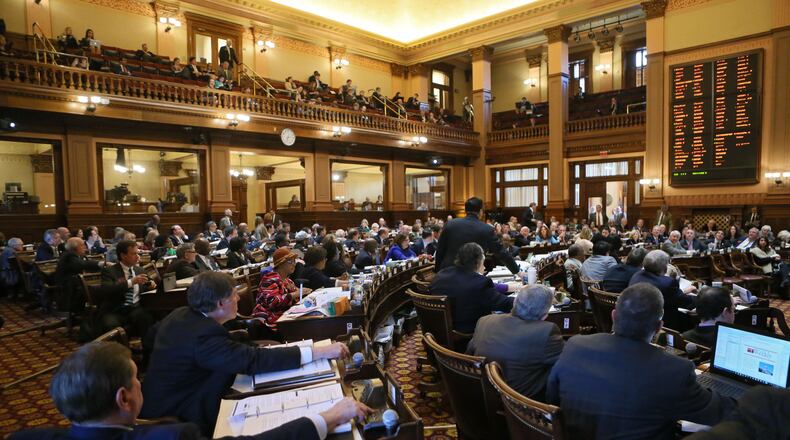The Georgia General Assembly has approved a bill that allows a referendum on raising sales taxes in DeKalb County to pay for road repairs and other infrastructure.
The legislation, Senate Bill 143, passed the state House of Representatives 146-0 on Monday. The Senate previously approved the legislation, which now heads to Gov. Nathan Deal.
DeKalb voters could decide in November whether to raise sales taxes from 7 percent to 8 percent. The special purpose local option sales tax (SPLOST) could raise $110 million a year for road repaving, police facilities, fire stations, sidewalks, libraries and other infrastructure.
The two-page bill corrects a mistake in legislation that passed in 2015. An error in the previous measure's legal wording would have triggered an unintentional property tax increase if voters had approved changing DeKalb's sales tax structure.
The bill that passed Monday affects several taxes:
- An existing part of DeKalb sales taxes is a 1 percent levy called the Homestead Option Sales Tax (HOST). If voters approve, all HOST revenue would go toward reducing residential property taxes. Currently, 80 percent of HOST funds go toward property tax relief, and the rest is distributed to city and county governments.
- The SPLOST for infrastructure will be put before voters if the DeKalb Board of Commissioners approves a project list and calls for a referendum. If voters reject either the SPLOST or the HOST, they both fail to become law.
- A property tax break for homeowners known as the frozen exemption will again be on the ballot. Last November, voters extended the frozen exemption for five more years. It gives homeowners a discount on their county property taxes to offset tax increases that occur when homes gain value over the years. Under SB143, the frozen exemption would remain in effect as long as the county has an equalized HOST.
About the Author
Keep Reading
The Latest
Featured



